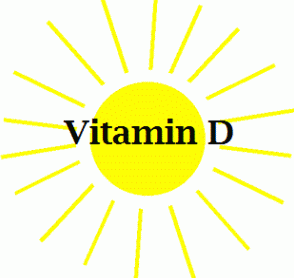Vitamin D deficiency is a common, serious medical condition that significantly affects the health and well-being of those affected.
It is estimated 30-40% of Australians are Vitamin D deficient.
Vitamin D deficiency is commonly misdiagnosed as fibromyalgia, chronic fatigue syndrome or depression.
Role of Vitamin D:
Vitamin D is extremely important for strong and healthy bones, as it help our bodies to absorb calcium.
Some research shows low levels of vitamin D may increase risk for sports injuries, including stress fractures because the nutrient is so vital for bone health.
Vitamin D also plays a key role in:
Muscle contraction– vitamin D is required for the activation of certain enzymes involved in muscle stimulation
Nerve stimulation– vitamin D is necessary for the nerves to carry messages between the brain and other parts of the body
Immune system– vitamin D helps activate and mediate the body’s immune function
Causes of Vitamin D deficiency include:
low UV exposure
inadequate nutrition
dark skin pigmentation
malabsorption disorders
people who spend a long time indoors
elderly
people who are obese with a body mass index greater than 30
Symptoms of Vitamin D deficiency:
Vitamin D deficiency has been linked to various health problems, including cognitive decline, depression, osteoporosis, cardiovascular disease, hypertension, diabetes, and cancer.
The symptoms of vitamin D deficiency are often subtle, so many people don’t know they are deficient.
Some of the symptoms include:
Fatigue or tiredness
Bone pain
Joint pain
Muscle weakness, muscle aches, or muscle cramps
Increased muscle sensitivity to pain
More frequent illness
Anxiety
Irritability
Weight gain
Hair loss
Tips to for adequate Vitamin D intake:
Ultraviolet (UV) radiation from the sun is necessary for the production of vitamin D in the skin and is the best natural source of vitamin D.
Sunlight and Vitamin D:
Getting 10-15 minutes of full body of sun exposure to arms, legs, abdomen and back, two to three times a week is ideal for Vitamin D production.
You may need less direct exposure in summer and more in winter. Be sure to always wear sunscreen if you out in the sun for extended periods (more than 15 minutes).
UV radiation from the sun is also the main cause of skin cancer, so striking the optimal balance of sun exposure is critical (see graph below).
Vitamin D and exercise:
This study showed people who performed three or more hours a week of vigorous exercise—such as running, jogging, or playing basketball or soccer— have higher levels of vitamin D as well as higher levels of HDL (good) cholesterol.
Another reason to go out and exercise in nature.
Foods that contain vitamin D:
Fatty fish like salmon, tuna, herring or sardines
Cheese
Milk
Egg yolks
Mushrooms
Other processed foods with added vitamin D usually say “fortified with vitamin D” on the package. These products include dairy products, orange juice and cereal.
Summary
Vitamin D deficiency is a commonly undiagnosed condition that can have serious impact on your wellbeing.
If you want to find out more and get yourself checked, please discuss with your GP.
References:
Ultraviolet radiation and health: friend and foe
Vigorous exercise linked to higher vitamin D levels, lower heart disease risk


